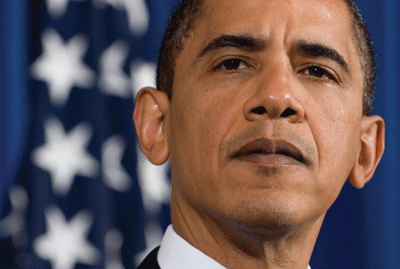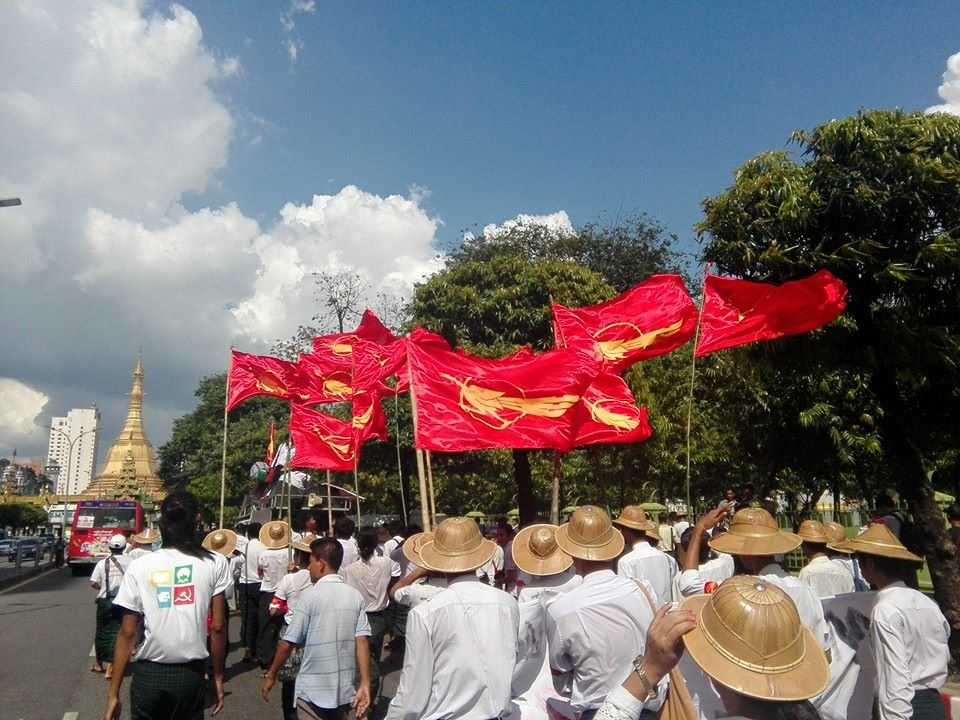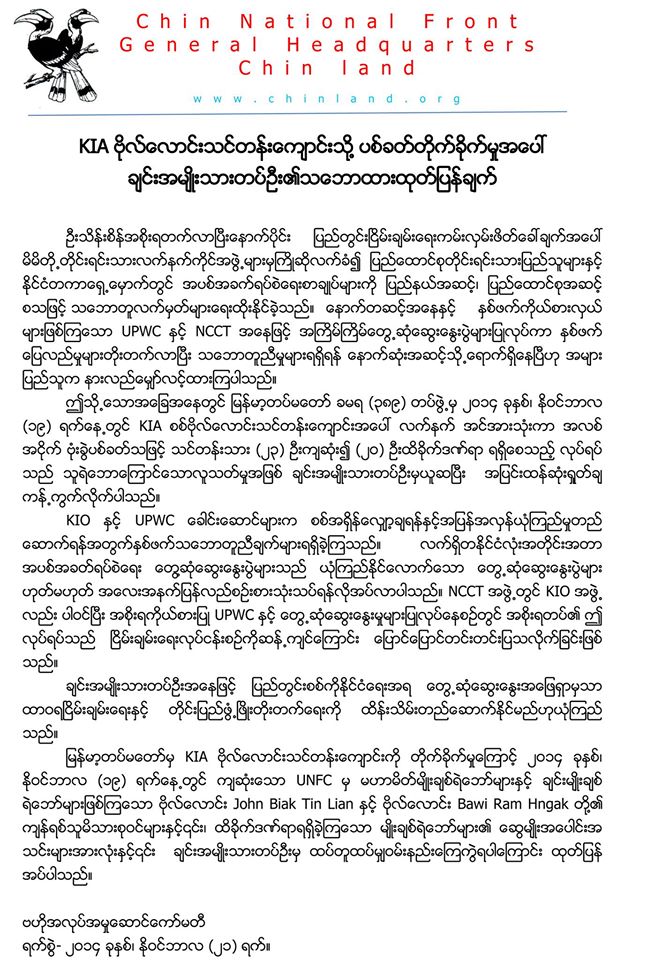Posts Tagged ‘President Thein Sein’ (163 found)
KIA ဗိုလ္ေလာင္း သင္တန္းေက်ာင္းသို႔ ပစ္ခတ္တိုက္ခိုက္မႈအေပၚ ခ်င္းအမ်ဳိးသားတပ္ဦး၏ သေဘာထား ထုတ္ျပန္ခ်က္
• • •Are You Listening, President Obama?
 US President Barack Obama’s made his much-anticipated second trip to Burma last week during the 25th ASEAN Summit, amid growing awareness that the reforms which he so eagerly celebrated during his 2012 trip are quickly unravelling – or being exposed for the stage-managed charade that they are.
US President Barack Obama’s made his much-anticipated second trip to Burma last week during the 25th ASEAN Summit, amid growing awareness that the reforms which he so eagerly celebrated during his 2012 trip are quickly unravelling – or being exposed for the stage-managed charade that they are.
In 2012, it was all too easy to trust the reform process. National elections had been scheduled for 2015, Daw Aung San Suu Kyi had been freed from house arrest and elected to Parliament, political prisoners had been released, a nationwide ceasefire process was underway with the majority of armed ethnic groups, and restrictions on media and civil society had been drastically loosened. And so the US and the international community embraced the reforms.
Yet, last month, in her recent address to the UN General Assembly, Special Rapporteur on the situation of human rights in Burma Yanghee Lee warned of the risks of backtracking. Then, earlier this month, Daw Aung San Suu Kyi labelled the process as “stalled” and remarked that “there have been times when the [US] government has seemed over-optimistic about the reform process.”
Furthermore, there has been a flurry of recent calls from civil society across Burma, directly raising their various concerns about the reform process with President Obama. The Karen Human Rights Group wrote an open letter drawing President Obama’s attention to human rights violations resulting from the ongoing government military presence throughout south-eastern Burma; […]
• • •Students Rally against Education Law
 Four hundred students held a march through Rangoon on Friday, begining at the central railway station and culminating in a sit-in demonstration outside the town hall. The protest continued until evening and coincided with US President Obama’s visit to the former capital.
Four hundred students held a march through Rangoon on Friday, begining at the central railway station and culminating in a sit-in demonstration outside the town hall. The protest continued until evening and coincided with US President Obama’s visit to the former capital.
The protest was staged in opposition to the National Education Law, signed into effect by President Thein Sein on 30 September. […]
• •[Burma] Government Using New Media Law to Stifle Criticism
SEAPA views with utmost concern the latest move of the Ministry of Information (MOI) in Myanmar to pursue legal action against the Myanmar Thandawsint (Myanmar Herald) using the new Media Law for publishing scathing commentary about the words of President Thein Sein. […]
• • •Statement by Shan Community Based Organizations (CBOs) to US President Barack Obama
We, Shan community based organisations, deplore the large-scale offensive that the Burma Army has been conducting in central Shan State since June 2014, which is in violation of an existing ceasefire agreement and completely negates the Burmese government’s claims to be building nationwide peace. We urge President Obama to publicly raise concerns about this offensive with President Thein Sein during his visit to Naypyidaw, and to call for the Burmese government to immediately end its military operations and begin political dialogue to end the civil war. […]
• • •Ethnic Cleansing of the Rohingya: Obama’s Duty is ASEAN’s Shame
KUALA LUMPUR — With Barack Obama gracing the halls of Naypyidaw this week, the world has quite rightly been calling loudly for the President of the United States of America to raise concerns regarding the backslide in human rights and democracy in Myanmar, not least of which being the institutionalized persecution and ethnic cleansing of the country’s Rohingya minority. […]
• • •Letter to President Obama
Dear President Obama,
We are writing on behalf of Kachin Society from Myanmar and abroad, composed of (27) organizations and networks.
We would like to welcome your administration’s courageous step in engaging with the Myanmar government, including your visit in 2012 and your delivery of the important speech at the University of Yangon. It resonates with us to this day. […]
• • •Obama’s Chance to Make Burma a Genuine Foreign Policy Success
As President Obama prepares to make his second visit to Burma, it is worth looking back at the promises made to him by Burma’s President Thein Sein on his last visit in November 2012 and to assess the worth of these promises. Burma, after all, is largely seen as a foreign policy success by the current administration amid the mess of Ukraine, Libya and the threat of ISIS […]
• •President Obama’s Burma Visit Offers Opportunity to Push for Improvement on Human Rights
NEW YORK – During his trip to Burma this week, President Obama should demand progress on a range of human rights issues, Physicians for Human Rights (PHR) said today […]
• • •Par Gyi Killing Highlights Continuing Impunity in Southeast Myanmar
The recent killing by the Myanmar Army of the journalist Aung Kyaw Naing, also known as Par Gyi, highlights the need to end impunity in Southeast Myanmar, according to the Karen Human Rights Group (KHRG), a leading community based organisation in the region. […]
• • •









 All posts
All posts